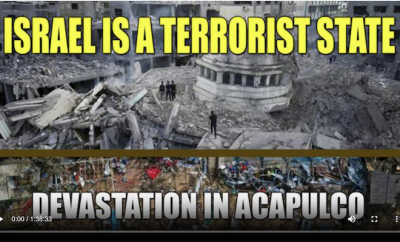 Reuters / Carlos Garcia Rawlins
Reuters / Carlos Garcia Rawlins
Featured
Social media deception: Venezuela exposes “La Salida” conspiracy
by Caleb Maupin, via RT.com:
From February to June 2014, Venezuela experienced a period of violence and terrorism by individuals whose stated goal was to force “La Salida,” (the Exit) of the elected government.
One year later, the Venezuelan government has documented the involvement of foreign powers in a campaign of media disinformation that accompanied the unrest on the streets.
On February 12, 2015, the Venezuelan Consulate in New York City commemorated the 43 people (33 civilians plus 10 police and military personnel) who perished during the events that took place last year. The presentation documented that the episode of violence and unrest was not a spontaneous, grassroots uprising. Instead it was the result of collaboration between nonprofit agencies in the United States and an extremely isolated fringe section of the Venezuelan right wing. The goal of this collaboration was to destabilize and overthrow the elected government.
Twenty-nine of the people who died during “La Salida” perished as a result of gunshot wounds, seven from traps set on roads. The violence that ultimately took 43 lives, included motorcyclists being virtually beheaded when they ran into steel wires placed across intersections by opposition groups. Bombings targeted hospitals, universities and buses. Explosions took place dangerously close to children’s daycare centers. Many people were in fear of their lives.
The roots of the Bolivarian Republic
The movement that eventually created the Bolivarian Republic of Venezuela can trace its roots to an upsurge in 1989 known as the “Caracazo.” This was an explosion of anger against neoliberal privatizations and the rising cost of public transportation. A rising amount of protests, strikes, and anti-Western sentiment eventually resulted in the 1999 election of Hugo Chavez as president and the 2002 beating back of a coup attempt against him.

















